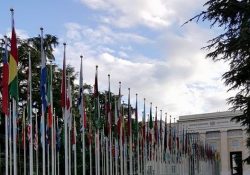KEI comment on WIPO report on patents landscape for the WHO essential medicines list
This is a comment on the WIPO- commissioned report on the patent landscape for the WHO essential medicines list, published on April 11th, 2016. The report is titled: Patent-based Analysis of the World Health Organization’s 2013 Model List of Essential Medicines, by Reed F. Beall and Amir Attaran, both at the University of Ottawa, Canada. This is is the third collaboration between WIPO’s Thomas (Tom) Bombelles (Head, Global Health, WIPO) and Attaran on the same topic — the patenting of medicines in developing countries.
